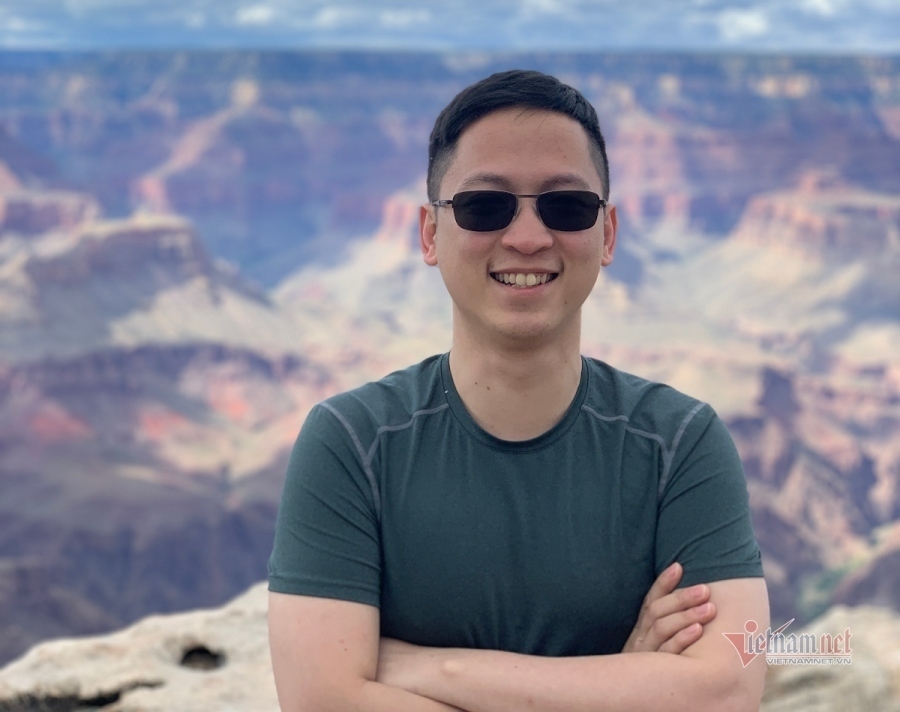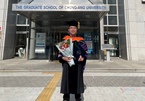
Le Van Hong Chan
Chan (born in 1991) is now a tech lead at Snap in the US, which provides technology products favored by youth such as Snapchat and Bitmoji.
“Since childhood, I have liked all things related to technology. I like seeing technological products change human life,” he said.
Chan believes that people in the field should go to Silicon Valley at least once, because it ‘has good advisors, good facilities, precious job opportunities and the best conditions to develop your passion for technology’.
For Chan, the US is a suitable environment because there is a balance between work and life.
“I think that the US is a good place for those who want to work in the technology sector. Come to Silicon Valley at least once to learn about a professional work attitude and business culture. In the US, people are quite serious, professional and concentrated,” he said.
“Google is an extremely large company and I am quite impressed about Google. But I think Google is a little bit ‘slow’. As it is too large, it spends time on plans and papers. Whatever you do, you must have a detailed plan, go through each step of the discussion, and then start implementing the plan,” he said, explaining why he finds the working environment professional but restrained.
About Facebook, he said: “In such a free and creative working environment like Facebook, you will get opportunities to do what you want.”
As for Snap, Chan said the business culture there is like the products Snap creates: private and secure. While the working environment at Facebook and Google is comfortable and open, in Snap, the environment is more disciplined and everything is more strictly controlled.
Talking about his career, Chan notes that he has had opportunities to work for large technology corporations, but has had to work hard.
“I feel that I am quite fortunate to have had the first probationary job at Microsoft, from which I could go further and try opportunities in other large corporations. The experience has given me good jobs,” he said.
Before going to the US, Chan worked as an intern at Infosys in India and took other jobs in South Korea (he studied at KAIST - Korea Advanced Institute of Science and Technology).
As an intern, he learned many valuable lessons. He likes Steve Jobs’ saying: “You can’t connect the dots looking forward; you can only connect them looking backwards”.
The years of internship were interesting with different jobs because he needed to try many things to know what he liked the most.
Chan believes that scores are not as important as experience.
“There are some things that you should not pay too much attention to, for example, GPA (grade point average). I know some guys who have GPA of 2.0 only, but still can obtain good jobs, thanks to experience during the internship,” Chan said, adding that what companies want are not scores but experience.
The Vietnamese engineer at Snap advised students to spend time on internships at companies during university. The more they practice, the more opportunities they will have to work for Big Tech. But in order to obtain internships at big companies, they need to begin with smaller ones.
“You need to make every effort to get the first intern job. After you get first jobs, you will get the second, third and subsequent jobs,” he said, adding that internships offered him many good relationships.
“Always ask for what you want” is what Chan advises young people to do.
“Don’t be afraid of raising questions. Please ask about what you don’t know, not only at work, but also in life, including about what you want to do. Many people are hesitant to ask, maybe because they are afraid of being refused,” he said.
Chan said Vietnam has advantages in the market, and has good human resources to develop technology. Blockchain is a typical example. Vietnam is now a ‘bright spot’ in the world’s blockchain map.
“Vietnam is an Asian country with good human resources in information technology. The country is quite capable of developing technology,” he said.
Phuong Uyen

Vietnamese man earns doctorate in South Korea at the age of 29
Nguyen Tri Hai, 29, thought that he just needed to find a good professor and a lab to have a future. However, he had no work to publish after two years of research.

COVID-19 forces nearly 3 million students to return to online learning
As of February 22, nearly 3 million out of total 17 million learners from kindergarten to high schools have to return to online learning due to complicated evolution of the COVID-19 pandemic, according to the Ministry of Education and Traing.